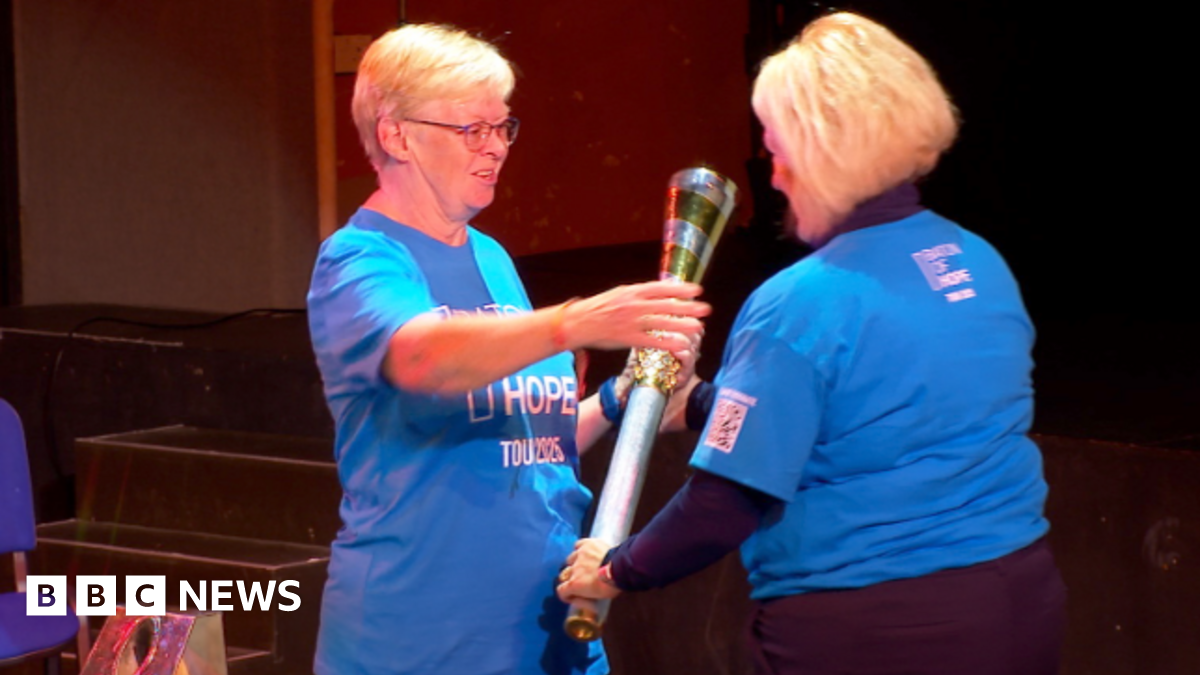Fighting Silence: A Community’s Response to Rising Suicide Rates
In the quiet coastal town of Torbay, a chilling statistic haunts its residents—each year, around 20 individuals succumb to suicide, a number alarmingly higher than the national average. This stark reality became personal for Ch Supt Roy Linden when he lost a close friend, a serving police officer, to suicide five years ago. “Just asking: ‘How are you?’ or meeting for a coffee can break down the conversational barrier that exists around suicide,” Linden reflects, emphasizing the simple yet profound importance of conversation in tackling this silent epidemic.
The Weight of Silence
Dr. Lincoln Sargent, director of public health for Torbay, firmly believes that the rise in suicide can be traced back to a culture that often discourages open discussions about mental health. “Often, people feel they have no options,” he remarks. “We want to show that hope is an option.” According to a study published by the National Institute of Mental Health, 60% of individuals who contemplate suicide express feelings of hopelessness, suggesting that community-based interventions centered around dialogue could be a powerful preventive measure.
A Regional Crisis
Torbay’s statistics mirror a disturbing trend seen across the UK. A recent report by Mental Health England noted a 20% increase in suicides in rural areas over the last five years. But beyond these numbers lies a tapestry of personal stories—children losing parents, friends grappling with the absence of loved ones, communities mourning. While national programs exist to address mental health, Hilda Mason, a local mental health advocate, argues that “local engagement is crucial. Tailoring support to community needs allows us to target those who feel most marginalized.”
- Education: Increase awareness about mental health resources.
- Support Networks: Encouraging community members to form informal support systems.
- Regular Dialogues: Organizing events to foster conversations around mental health.
A Beacon of Hope
This call to action is clearly echoed by Mr. McCarthy, the co-founder of Baton of Hope UK, whose personal tragedy fuels his relentless advocacy. His son’s death—a mere two weeks after being placed on a waiting list for mental health services—becomes a rallying cry for many. “He asked me to fight for mental health, and I still hear that every day,” McCarthy said, his voice poignant with emotion. He recognizes the urgent need for change, stating, “We’ve swept this subject under the carpet for too long. These were good people. I want to honor them and be their voice.”
The Baton of Hope Tour
The Baton of Hope UK has embarked on a tour, beginning in Blackpool on September 1 and culminating in London on World Mental Health Day, October 10. This initiative aims to raise awareness, offering not only resources but also a platform for those affected by suicide to share their stories. The tour’s significance goes beyond simple dialogue; it embodies a movement to reclaim hope from despair.
Changing the Narrative
As the tour makes its way through 20 towns and cities, its impact is palpably felt. Each stop fosters an environment of openness, focusing on those left behind and the questions that linger long after a tragedy occurs. Dr. Sargent emphasizes, “We are here to not just highlight statistics but to transform how we communicate about mental health. This journey is as much about healing as it is about awareness.”
A Ripple Effect
Supporters of the event have praised it for igniting a community conversation. “It’s difficult to put into words how much one simple conversation can mean,” says Linda Harper, a mental health nurse. “Sometimes people just need to know they’re not alone.” The efforts in Torbay are indicative of a broader movement, echoing studies that show local action is critical in suicide prevention. According to the World Health Organization, suicide can be reduced by up to 20% with effective community collaboration and public awareness campaigns.
As the Baton of Hope UK tour progresses, it becomes evident that the urgency of the message resonates deeply within each community visited. The emphasis on mental health awareness is not just about listing services; it involves a profound shift in societal attitudes towards sharing feelings and seeking help without stigma.
The success of initiatives like Baton of Hope UK hinges on their ability to foster genuine connections among community members. A brief conversation over coffee, a simple check-in, or sharing stories can dismantle the walls built around mental health discussions. For many, it means transforming the painful narrative of loss into a story of solidarity and action.
In advocating for mental health, the voices of Torbay echo through the UK, urging others to confront the demons that reside in silence. As communities rally together, resonating stories of hope will continue to replace the despair of lost lives, fostering a culture where every individual feels empowered to seek help and offer support.
Source: www.bbc.co.uk


